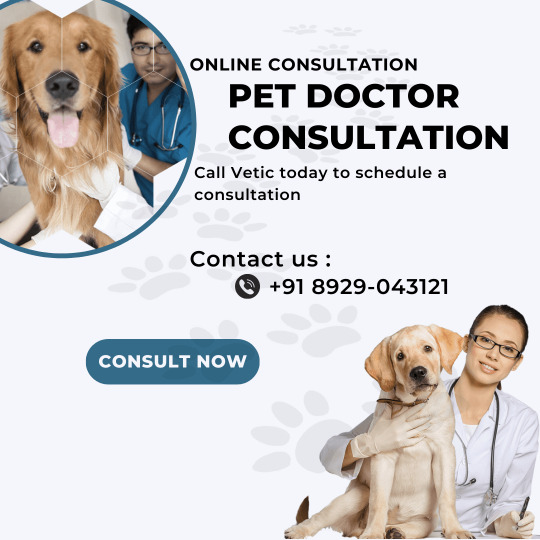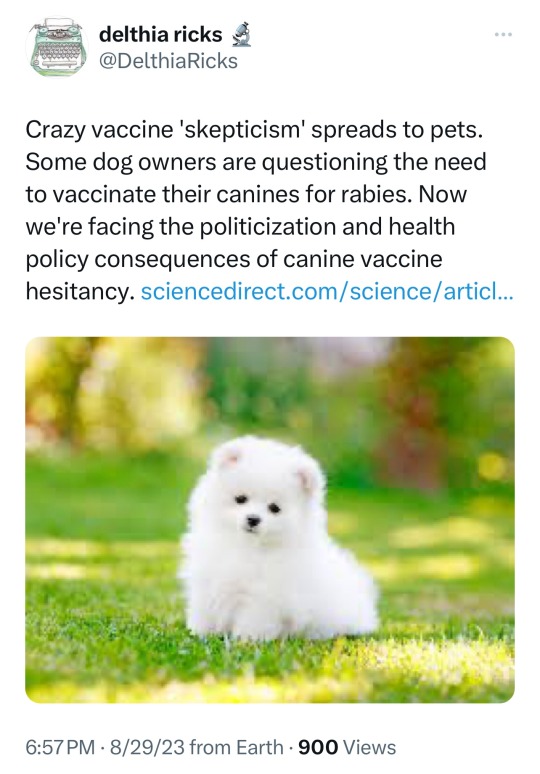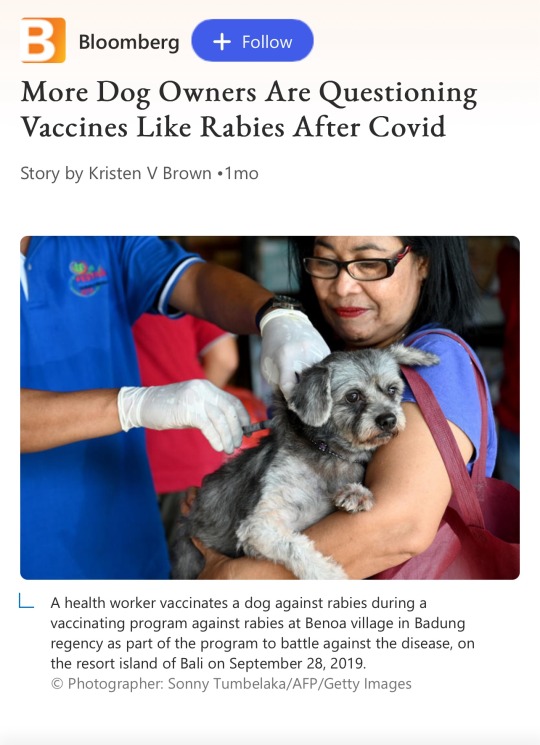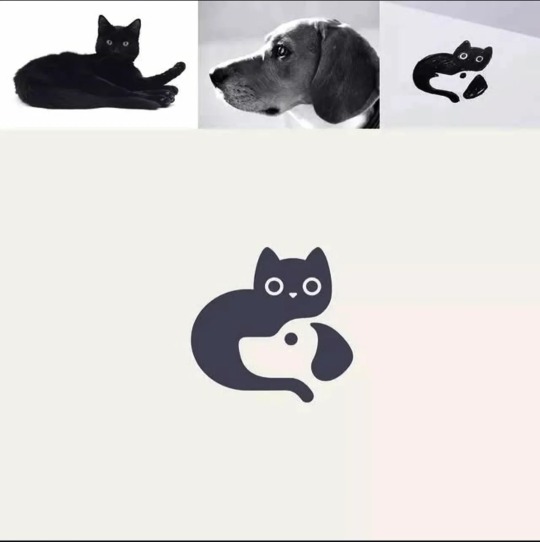#pet vaccination
Explore tagged Tumblr posts
Text
Free Kitten Vaccination UK: Everything You Need To Know 2025.
Adopting a kitten is one of life’s purest joys, but along with the cuddles and playful antics comes the responsibility of ensuring your furry friend stays healthy. Vaccinations are a cornerstone of preventative care, protecting your kitten against life-threatening illnesses. And the best part? If you’re in the UK, there are opportunities to access free kitten vaccinations—an invaluable resource for new pet owners.....Read More
https://exploreplex.com/free-kitten-vaccination-uk/

#steve rogers smut#jaybin mimicking british accent to make alfred happy lol#jason todd#red hood#dcu comics#dc universe#dcu#bruce wayne#batfamily#batman#batfam#dick grayson#alfred pennyworth#pets#cute pets#pet vaccination#pets of tumblr#kittens#cat#cute animals
2 notes
·
View notes
Text

Doorstep Veterinary Care
VetÓhome – “Why strain when your pet is in Pain”
Location: Bengaluru, Hyderabad, Chennai
Your FurCompanion is unwell or sick, no one around to take to him to Vet?? Call your BuddyVet home and get your snuggle pawster back on its healthful form in no time.
We strongly believe that 85% of the symptoms which your pets show can be treated at the comfort of your home, without having a stressful clinic visit. Our Experienced Veterinary Doctors will be carrying all the necessary equipment’s needed to provide a best Pet Healthcare service at your doorstep helping you and your lovely pet to avoid all the long & stressful travel to a Vet Clinic. We treat all the cases as a priority and ensure a Same Day Vet Visit to your location.
Call us or Whatsapp us to book our Doorstep Veterinary Service offered by our in-house team of “Well Trained” and “Experienced Vet” to bring best in class Veterinary Healthcare for your Pet at the comfort of your home.
We Wish Your Lovely Pet a Speedy Recovery
Visit US -> https://easzopets.com/
BOOK NOW
2 notes
·
View notes
Text

Protect your pets from harmful parasites with effective deworming services at Atlas Pet Hospital in Norco. Regular deworming is essential to prevent and control infestations that can affect your pet's health and comfort. Our team provides tailored deworming plans based on your pet’s needs, ensuring they stay healthy and parasite-free. Learn more about our deworming services at Atlas Pet Hospital.
#atlas pet hospital#deworming services#norco#pet care#pet vaccination clinic#pet vaccination#vaccinations for pets
0 notes
Text
Understanding Parvovirus in Pets: Symptoms, Prevention, and Treatment

Parvovirus, commonly known as Parvo, is a highly contagious viral infection that affects many pets, especially young puppies and kittens. This article delves into the major symptoms, cures, prevention methods, and essential information on this dangerous virus. If you want to ensure your pet's health and safety, learning about Parvo and its impact on different animals is essential.
Visit Vetic to access expert veterinary care, diagnostics, and prevention tips for keeping your pet healthy.
What is Parvovirus (Parvo)?
Parvovirus is a life-threatening disease affecting mainly dogs, cats, and other mammals. Known for its rapid spread and high fatality rates, Parvo attacks the gastrointestinal and immune systems. Parvovirus is resilient, meaning it can survive in the environment for long periods and can be challenging to eradicate.
1. Pets Susceptible to Parvovirus
While Parvovirus is often associated with dogs, other animals can also contract it, though dogs are among the most vulnerable.
a. Dogs
Puppies and unvaccinated dogs are most at risk of Parvo infection. Breeds with higher susceptibility include Rottweilers, Dobermans, and American Pit Bull Terriers.
b. Cats
Cats can contract a similar virus, often referred to as feline panleukopenia. Although it's not the same virus as canine parvovirus, its symptoms and severity are similar.
c. Other Mammals
While uncommon, other mammals such as foxes and raccoons can also carry and spread Parvo.
2. Symptoms of Parvovirus in Pets
Recognizing the signs of Parvo early is crucial for effective treatment. Here are the most common symptoms seen in infected pets:
Lethargy: A noticeable decrease in energy and enthusiasm.
Vomiting: Persistent vomiting is a red flag, especially in puppies.
Loss of Appetite: Infected pets often lose interest in food.
Fever: An elevated temperature may indicate infection.
Bloody Diarrhea: One of the hallmarks of Parvo is severe, often bloody, diarrhea.
Dehydration: Constant vomiting and diarrhea can lead to rapid dehydration, putting the pet at even greater risk.
If you notice any of these symptoms, contact a veterinarian immediately. Parvovirus progresses quickly, and time is of the essence.
3. How Does Parvovirus Spread?
Parvo spreads primarily through contact with infected animals or contaminated objects, such as food bowls, bedding, and even human clothing. The virus is particularly resilient and can survive on surfaces and in soil for months. As a result, the risk of infection remains high if these areas are not properly disinfected.
4. Treatment Options for Parvovirus
Early intervention is key to improving an infected pet's chances of survival. Treatment for Parvo focuses on supporting the pet’s immune system and managing symptoms:
Hydration Therapy: Dehydration is a serious risk; intravenous fluids are usually administered to restore hydration.
Antiemetics: These medications help control vomiting and nausea.
Antibiotics: To prevent secondary bacterial infections, antibiotics may be prescribed.
Nutrition Support: Feeding support, often through an IV, ensures the pet maintains necessary nutrients.
Hospitalization: Most pets with Parvo require intensive care, making hospitalization essential for their recovery.
Since no specific antiviral exists for Parvo, supportive care is the best available treatment. Seek immediate help from a professional, like those available at Vetic, to maximize recovery chances.
5. Preventing Parvovirus in Pets
Prevention is far better than treatment, especially for Parvovirus. Here’s how to keep your pet safe:
a. Vaccination
Vaccination is the most effective way to prevent Parvo. Make sure your pet, particularly young puppies and kittens, receives their vaccinations on schedule.
b. Hygiene
Regularly disinfect your pet's toys, food bowls, and living areas. Be cautious when taking young, unvaccinated pets to public places.
c. Avoid Contact with Infected Animals
Keep your pet away from animals suspected of carrying Parvo. This applies to pet parks, shelters, and areas with high dog traffic.
d. Regular Vet Check-ups
Routine vet visits are essential to keeping your pet in good health. Vets can provide booster vaccinations and monitor for any early signs of illness. Visit Vetic for more information and to schedule an appointment.
6. The Importance of Parvovirus Awareness
Parvovirus remains a serious threat to pets around the world. Raising awareness about this disease and taking preventive steps can save lives. Ensuring your pet is vaccinated, keeping a clean environment, and seeking immediate care if symptoms appear are critical measures.
7. Why Choose Vetic for Parvovirus Prevention and Treatment?
At Vetic, we understand the love and commitment pet owners have for their furry companions. Our experienced veterinarians provide comprehensive Parvo vaccination programs, symptom management, and expert advice for prevention. With our state-of-the-art facilities and compassionate care, we are here to ensure your pet lives a healthy, happy life.
Visit Vetic today to learn more about our services and how we can help protect your pet from Parvovirus and other health risks.
#parvovirus#dog health#dog care#dog behavior#dog#animal#puppies#petlover#dog lover#pet#pet vaccination#pet vaccines#pet health#pet care#pet safety#pets
0 notes
Text
0 notes
Text


Istg, if I ever get rabies because some dumb ass antivaxxer refused to vaccinate their dog, I’ll probably be doing the rest of my blogging from prison because I promise you, Imma curbstomp the shit out of the owner
#politics#republicans#antivaxxers#rabies#dogs#vaccine skepticism#vaccine hesitancy#animal abuse#pets
28K notes
·
View notes
Text
Affordable Pet Vaccinations: Protecting Your Furry Friend Without Breaking the Bank
Pet ownership comes with a variety of responsibilities, one of the most crucial being vaccination. While ensuring your pet receives the necessary vaccinations is paramount for their health and well-being, the costs associated with these procedures can often deter pet owners. However, there are numerous options available for affordable pet vaccinations that can help you safeguard your furry companion without straining your finances.
Affordable Pet Vaccinations Importance
Vaccinations play a vital role in preventing numerous infectious diseases that can pose serious threats to your pet’s health. By stimulating the immune system to produce antibodies against specific diseases, vaccines effectively protect pets from illnesses that could otherwise result in severe complications or even death.
Common Vaccinations for Pets
Affordable Pet Vaccinations Core
Core Affordable Pet Vaccinations vaccines are those recommended for all pets due to the widespread prevalence of the diseases they protect against. Examples include:
Rabies
Canine Distemper
Canine Parvovirus
Feline Panleukopenia
Affordable Pet Vaccinations Non-Core Vaccines
Non-core vaccines are typically recommended based on factors such as lifestyle, environment, and risk of exposure. These may include vaccines for:
Bordetella (Kennel Cough)
Leptospirosis
Feline Leukemia
Affordable Pet Vaccinations Factors Influencing Vaccination Costs
The cost of pet vaccinations can vary significantly depending on several factors:
Location
Vaccination costs may differ based on your geographical location and the prevailing cost of living in your area.
Type of Affordable Pet Vaccinations
Different Affordable vaccines have varying prices, with some being more expensive due to factors such as research and development costs.
Pet’s Health History
Pets with pre-existing health conditions may require additional tests or precautions before receiving vaccinations, potentially increasing overall costs.
Finding Affordable Vaccination Options
Despite the potential for high costs, several avenues exist for obtaining affordable pet vaccinations:
Local Animal Shelters and Clinics
Many animal shelters and rescue organizations offer low-cost vaccination clinics to promote responsible pet ownership within the community.
Low-Cost Vaccination Clinics
Numerous veterinary clinics and pet stores host periodic vaccination clinics where pet owners can access discounted vaccination services.
Veterinary Schools
Some veterinary schools provide low-cost vaccination services as part of their educational programs, allowing students to gain practical experience under the supervision of licensed veterinarians.
Tips for Budgeting Pet Vaccination Costs
Plan ahead and budget for routine vaccinations as part of your pet’s overall healthcare expenses.
Consider purchasing vaccination packages or wellness plans offered by some veterinary clinics to save money on routine healthcare services.
Explore alternative vaccination schedules with your veterinarian to spread out costs while still ensuring your pet receives essential protection.
Affordable Pet Vaccinations Risks
While cost considerations may tempt some pet owners to skip vaccinations, doing so can have serious consequences for their pets’ health. Without proper immunization, pets are vulnerable to potentially life-threatening diseases that could have been easily prevented.
Conclusion
Affordable pet vaccinations are essential for ensuring the health and well-being of your furry companions. By exploring cost-effective options and prioritizing preventive care, you can protect your pets from a range of infectious diseases without breaking the bank.
FAQs
1. Are affordable pet vaccinations as effective as more expensive options?
Yes, affordable vaccinations are often manufactured by reputable pharmaceutical companies and provide the same level of protection as their higher-priced counterparts.
2. Can I administer vaccinations to my pet at home to save money?
While some pet owners may consider administering vaccinations themselves, it’s crucial to consult with a veterinarian to ensure proper dosage and administration techniques.
3. How often should my pet be vaccinated?
Vaccination schedules vary based on factors such as age, lifestyle, and health status. Your veterinarian can recommend a customized vaccination plan for your pet.
4. Are there any financial assistance programs available for pet vaccinations?
Some nonprofit organizations and charities offer financial assistance or low-cost vaccination clinics for pet owners in need. Additionally, some pet insurance policies may cover vaccination expenses.
5. What should I do if I can’t afford vaccinations for my pet?
If you’re facing financial difficulties, reach out to local animal shelters, rescue organizations, or veterinary clinics to inquire about discounted or subsidized vaccination options.
1 note
·
View note
Text
youtube
Everything You Need to Know About Pet Vaccination
Client: Royal Canin PH
Director: Shin Francisco
Videographers: Shin Francisco & Zelda Carreon
Video Editor: Shin Francisco
Motion GFX: Zelda Carreon
Content Strategist & Writer: Jean Macabodbod
0 notes
Text
More than half of Americans are skeptical about vaccinating their dog
The recent pandemic brought vaccine hesitancy to the forefront in the US and now a new study shows this skepticism has extended to our canine companions. With the pet population on the rise in the US, the new study led by Boston University’s School of Public Health in partnership with YouGov, showed that dog parents consider vaccines administered to dogs to be unsafe (37%), while 22% consider it…

View On WordPress
#canine vaccinations#canine vaccine hesitancy#dog friendly#dog rabies#dog vaccinations#dog vaccines#pet friendly#pet travel#pet vaccinated#pet vaccination#travel with dog#vaccination hesitancy
0 notes
Text
The Benefits of Pet Vaccination: Safeguarding Your Furry Companion's Health
We cherish our pets and have a special bond and place for them in our hearts, providing love, companionship, and unwavering loyalty. As responsible pet owners, we must prioritize their well-being and protect them from preventable diseases. Pet vaccination plays a crucial role in ensuring the health and longevity of our beloved animal companions. In this article, We will examine the several advantages of pet vaccination, highlighting the importance of veterinary clinics such as the Huntington Village Animal Hospital in providing comprehensive veterinary services.
Preventing Diseases and Their Spread
Pet vaccination is the cornerstone of preventive healthcare for dogs, cats, and other domestic animals. Vaccines contain antigens that stimulate the immune system, preparing it to fight off specific diseases. By vaccinating pets, owners can prevent diseases threatening their furry friends, such as canine distemper, feline leukemia, rabies, and parvovirus.
Vaccination benefits the health of the entire animal population in addition to protecting specific pets. Vaccinated pets act as a barrier, reducing the prevalence and spread of diseases within communities. Vaccination is particularly important in areas with high population density or where pets frequently interact, such as dog parks or boarding facilities. Vaccines help create a safer and healthier environment for both pets and humans.
Cost-Effective Healthcare
While the initial cost of pet vaccination may seem like an expense, it is a worthwhile investment in the long run. Vaccinating pets helps prevent the development of severe and costly diseases. Treatment for illnesses like parvovirus or feline leukemia can be expensive, often requiring hospitalization and extensive medical interventions. By contrast, the cost of routine vaccinations is considerably lower, making it a cost-effective approach to maintaining your pet's health.
Regular vaccinations can help detect and prevent potential health issues early on, reducing the need for more expensive treatments in the future. Pet owners can save money on veterinary bills by staying up-to-date with vaccinations and ensuring their pets lead healthier lives.
Extending Lifespan and Quality of Life
Pet vaccination significantly contributes to extending the lifespan of our furry companions. Vaccines protect against life-threatening diseases that can debilitate or even prove fatal for animals. Owners provide a solid foundation for a longer and healthier life by ensuring their pets are up-to-date on vaccinations.
Additionally, vaccinated pets are less likely to suffer from preventable diseases' painful and distressing symptoms. Vaccines help prevent conditions that can cause discomfort, such as respiratory distress, paralysis, and organ failure. Owners promote a higher quality of life for their beloved pets by prioritizing pet vaccination.
Protecting Community Health
Regular pet vaccination benefits individual animals and protects the wider community. Pets that have received vaccinations serve as a barrier, halting the spread of diseases to people and other animals with whom they come into contact. Vaccination is especially crucial in densely populated regions like urban cores and neighborhoods that welcome pets.
By vaccinating pets, owners contribute to herd immunity, the resistance to spreading diseases within a population. When a significant portion of the pet population is vaccinated, the risk of disease outbreaks decreases, protecting vulnerable animals and humans who may not be able to receive vaccinations themselves.
Veterinary clinics, like the renowned Huntington Village Animal Hospital, provide vital services in promoting community health through comprehensive pet vaccination programs. By adhering to vaccination schedules recommended by experienced veterinarians, owners contribute to the overall well-being of their pets and the surrounding community.
Compliance with Legal Requirements
Many regions have legal requirements mandating pet vaccination against specific diseases, primarily rabies. Adherence to these rules is required to prevent legal repercussions and ensure the safety of pets and the community. Regular vaccination helps maintain a healthy and responsible pet ownership culture, preventing outbreaks of dangerous diseases.
Owners demonstrate their commitment to responsible pet ownership by keeping their pets up-to-date on vaccinations. Vaccination helps protect their pets and shows respect for the well-being of other animals and humans in the community.
Conclusion
Pet vaccination is an indispensable component of responsible pet ownership. By vaccinating our furry companions, we protect them from preventable diseases, extend their lifespan, and enhance their overall quality of life. Additionally, pet vaccination contributes to the well-being of the broader community by reducing the spread of diseases. Veterinary clinics like the Huntington Village Animal Hospital are pivotal in providing comprehensive veterinary services, including pet vaccination programs.
As caring pet owners, let us prioritize the health and safety of our beloved animals by staying informed about recommended vaccination schedules and consulting with experienced veterinarians. We can create a healthier and happier environment for our furry friends and ourselves.
#pet vaccination#pet vaccination benefits#Huntington Veterinary#veterinary clinic#veterinary services#Huntington Veterinarian#Huntington Village Animal Hospital#veterinary care
1 note
·
View note
Text
Anyway, while I’m contemplating the next topic, please endure a short ramble about the extremely effective euthanasia metaphor that is ‘Tinkerbell and the Legend of the Neverbeast’ and why I consider it an emotional vaccine.
youtube
#veterinarian#euthanasia#pet death#grief#emotional vaccine#gentle parenting#emotional regulation#parenting#tinkerbell#neverbeast#Youtube
162 notes
·
View notes
Text

Support your dog’s health with expert nutrition guidance from the professionals at Atlas Pet Hospital in Norco. Our certified dog nutritionists create personalized diets tailored to your pet’s unique needs, ensuring optimal health and well-being. Whether it’s weight management, allergies, or specialized diets, we help your dog thrive with the right nutrition.
0 notes
Text

Cute "cat + dog" logo for a petshop 🐶🐈🐾🧡
Get your unique & creative logo! Your brand visual identity is as much as important as marketing.
#dog#cat#petshop#petcare#logo#hello kitty#puppy#pet vaccines#pet care#negative space#modern#black and white#drawing#sketch#digital art#vector#illustration#artists on tumblr
41 notes
·
View notes
Text
TW: pet death.


I miss my Lu.
Cats tag: #YukiPriASLKittens
#YukiPriASLKittens#cat!Luffy#tw: pet death#tw: animal death#tw: pet loss#the rabies vaccine is so important and it's supposed to be safe#this was apparently like a one in a million thing#but now we take extra precautions including benadryl before to reduce any possible effects + close monitoring for a while afterwards#still makes me feel ill from stress but the vaccine is annual...#it's been a rough year such a rough year#and today's been a rough day too#but time keeps on rollin
146 notes
·
View notes
Text

#warriors#warrior cats#smudge#smudge wc#kittypet#arc 1#art#i like smudge because if he was real he would let me pet him and he is probably vaccinated for rabies#wc design
35 notes
·
View notes
Text
I think it's time for some "quiet quitting"
#text post#personal whining#i am so tired of being asked to cram 80 hours of work into a 40 hour week#i go to work and am overwhelmed and abused for 6-10 hours#then i come home and im too tired to cook clean or engage with my husband children pets hobbies#i am definitely in a depressive episode rn#and its because of work#4 people (including the pharmacist) is not enough to run a functioning pharmacy#and its not even flu season yet#when well be expected to do 10+ vaccines per day#on top of all the work we already arent managing to get done#with only ONE person who's eligible to give vaccines
28 notes
·
View notes